
Lajme
string(122) "exclusive-interview-with-richard-grenell-in-washington-we-will-talk-only-on-economy-the-eu-to-lift-visas-for-kosovo-people"
Berat Buzhala
18/06/2020 22:28Exclusive Interview with Richard Grenell: In Washington we will talk only on economy, the EU should lift visas for Kosovo people
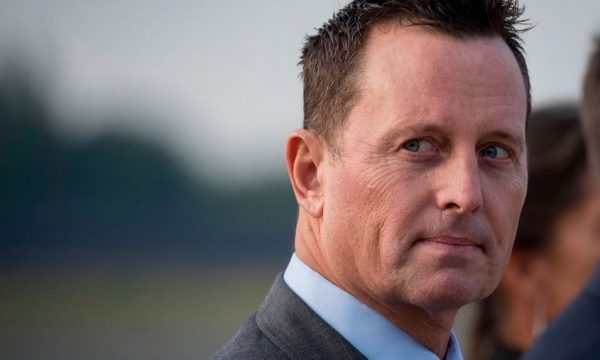

Berat Buzhala
18/06/2020 22:28US special envoy on dialogue, Richard Grenell, is clear: In this phase, which he refers as the first phase, Kosovo and Serbia should normalize economic relations. Grenell said to have informed French and German representatives on that. The second phase, Grenell says, should be led by the Europeans.
In an exclusive interview with the Gazeta Express, the US President Donald Trump’s special envoy on dialogue, Richard Grenell, has denied the 27 June meeting at the White House between representatives of Kosovo and Serbia will be on political issues. “There is a lot of rumors out there as to what these talks are about, and people who do not know are pretending to know and are confusing the public,” Grenell said. He advised people in Kosovo, Serbia, and Europe to listen only those who are competent on this topic, and not speculators. “I do not know how many times I need to say it, but I have made perfectly clear to everyone involved that we, the United States, feel very strongly that this 20 year fight between Kosovo and Serbia is only going to be solved through economic normalization,” Grenell said.
According to the US Envoy, this should be the first phase of the dialogue between Kosovo and Serbia. He says the second phase, should be led by the Europeans, adding that this should happen only after seeing positive results in economy. Grenell says that he will keep asking the Europeans to start liberalization of visas for Kosovo, because as he said, without visa liberalization there can be no economic development.
Read full Interview:
Q: Mr. Grenell, last time we spoke prime minister of Kosovo was Albin Kurti. After no-confidence motion on his Government, he said that he was ousted with your help, what was your contribution, what is your answer to that?
Grenell: Look, I am not going to look back, these are issues for the people of Kosovo, this is nothing more than the United States being able to determine its own US policy. And from the US Embassy, to the State Department, to the National Security Council, to the White House, the United States Government was unified in that we do not want to waste our tax dollars, and we were under no obligation to give away money to countries that have policies that are going to waste our support. So, we just have a very simple policy which was that if there were tariffs and reciprocity by any government in Kosovo we would not be able to give our financial support, because we thought it was a waste. This had nothing to do with Mr. Kurti or any other government. It was a policy of the United States Government to hold back our support. Kosovo had policies that were harming itself, so we did not get involved at all on who is involved in government, we stood very firm in our policy that we do not want to waste our money. I find it to be quite shocking that people would expect US taxpayers’ dollars no matter what their policy was. And that is not what Trump Administration does, you cannot just say that you automatically get US dollars no matter what type of policy you institute. There are consequences for any government policy when it comes to the US support. It is not always to be assumed that we are just going to write blank checks, and this was a policy that the USAID to MCC to all of our government agencies that the policy of tariffs and reciprocity and 100 percent tariffs were harming Kosovo’s own economy which was already fragile and therefore we do not want to waste our money. So, just simply sat on a side. If people involved in the Government of Kosovo decided that having US Government on the sidelines was a real problem for them, then that is when they have the right to do whatever adjustments they want. We made it perfectly clear to Albin Kurti that this was the US policy. He could go forward without US support, that was his choice. We did not demand anything other than just say if you want our support than you can’t have 100 percent tariffs and reciprocity.
Q: Yes, but you would not have cooperated with him unless he decided to drop tariffs. So, he could not come to the White House without dropping…?
Grenell: Albin Kurti had multiple chances to work with the US Government, and he decided that he did not want to, because he had a policy that was in contradiction to our policy. He might have tried to move forward and say that his policy was the best. I would not comment further on that. This is all what I have to say for Kurti.
Q: Last question about this issue. He [Kurti] said in an interview that he had communication with you even after he was ousted from Office. Have you communicated with him. Is this true?
Grenell: I do not believe this is true, I have to check on that and get back to you. All I want to say is that I had a very limited communication with him. One time in person, maybe I might have met him twice. Each time I went to Pristina I saw him very briefly.
Q: But at the begging it looked like you have had a very high expectation on him.
Grenell: No, that is not true at all. I did not know him at all.
Q: All right, because you had an exchange with the then Speaker of the Assembly, and leader of the PDK, Kadri Veseli…?
Grenell: There is a lot of rumors out there. When I came to Pristina, I met with everybody briefly. I then had a phone call at the White House with Robert O’Brien, me, and Albin Kurti. A very long phone call, where he was very adamant and very strong that he was not going to change his policies and he still wanted US support. We made it clear on that call that we are great friends with Kosovo, we wished them well, but we were not in a position to give money away and to provide financial support when you are making policies that are harming your own economy. So, we made it perfectly clear, he knew, and he chose to continue with his policy anyway, and he said: “I can do anything this is my policy.” I only saw him once in Pristina, one phone call with O’Brien and some very limited text messages. It was very minimal. He acted like we spoke all the time and I made pressure on him. That’s not true, we had a very limited communication because we made it clear exactly what our policy was, and he knew that there was any mystery to that.
Q: Do you think that Avdullah Hoti is going to be a legitimate prime minister?
Grenell: I am not going to get involved on who people of Kosovo have as their leader. We are not involved in politics of Kosovo. The US position is we are going to help your economy if you do not harm your own economy.
Q: There is an ongoing tense debate in Kosovo on who should be leading our delegation. My question is: Are you going to send invitations, and make it clear on who should be leading the delegation to the White House meeting, or this is an internal issue?
Grenell: We do not control Kosovo. We are an ally of Kosovo. You pick who your delegation is. We invite people who chair the president and prime minister’s offices. That’s what we do. We did it for Kosovo, we did it for Serbia. We invite official people sitting on those chairs, you determine your own delegation. We are not involved on that at all.
Q: What should we expect from 27 June meeting at the White House?
Grenell: You should only expect conversation about economic issues. There is a lot of rumors out there as to what these talks are about, and people who do not know are pretending to know and are confusing the public. And I really hope that public in Kosovo, Serbia and Europe understand that they need to listen only people who know what they are talking about. Because there are some selfish reporting and commentators that are pretending to know what is going on. I do not know how many times I need to say it, but I have made perfectly clear to everyone involved that we, the United States, feel very strongly that this 20 year fight between Kosovo and Serbia is only going to be solved through economic normalization, jobs for young people, and a growing economy. All the political issues, that all political people in Europe and Kosovo keep jumping ahead to, the reason those issues have not been solved for 20 years, is because you are not focused on the people who need to benefit from economic normalization. You have a lot of young people leaving the region and moving to Germany, Hungary, or Poland because they do not feel there is a hope in Kosovo. That is not going to be solved by immediately forcing an issue on normalization of some sort. And by the way this is largely an issue for Europe. There are people who are saying that the Europeans and US are not on the same page.
Q: Yes, Lajcak said today in Pristina.
Grenell: Anyone who said that you should not listen to. Because that is not true. I have coordinated multiple times with French National Security Advisor and the German National Security Advisor. They both know exactly what the limited role of the US is. Our limited role is to push towards economic normalization, to help create jobs, to help lose somebody’s political issues, anyone who keeps pushing political issues to the forefront, or claiming that we are going to talk about political issues next week is wrong. My vision, that I talked to French and German officials, has always been two steps: The first step is economic normalization. I do not know how many times the US and Trump Administration can say this. People need to listen. We are focused on the economic normalization. We are trying to create some trust. Therefore, it is incredibly important to finish the agreements on air, rail, and motorway. This is how commerce develops.
Q: So this is the backbone of the new agreement, rail, highway, air transport?
Grenell: Correct. And at the same time, the Europeans path with Kosovo and Serbia towards the EU integration, that is totally led by Europe but that cannot be done until there is an economic normalization. This is the US vision. We feel very strongly that trying to force these issues that have been forced for 20 years the reason that has not worked is because there is no benefit to the people. The people need to see a growing economy in order to talk about finishing the talks. And so, it is very important that people understand, and we said this this is not breaking news, this is not new news, we are focused on the economic portion and this is the only part that we are talking about in Washington – is economic driven. The French know this, the German know this, and they approve, because a second step, which will take a while. You know, you are not going to be able to talk about political issues until you see economic progress, new jobs and that takes a long time, which is another direct hit against this rumor that the Trump Administration is looking for a quick deal. That is totally wrong and has never been part of the equation. We do not have a timeline we never demanded something quick. Albin Kurti kept saying that and he also kept saying that we want land swaps. I am telling you; we are not talking about those hard-political issues. The focus of the United States is on economic normalization. Air, rail, and border issues. So, coming to the table and talk about these issues is exactly the focus. This is why the French and the Germans completely understand than when we get through economic portion and then they switch, you know this is going to take a while again when jobs start to come back and the economy starts to improve then you can start talking about political issues and then the Europeans are going to be in the lead on that.
Q: You are going to closely cooperate with the Europeans on political issues?
Grenell: There are two different phases to this: The US is focused on the economy. The political issues are European issues that comes second, that is not going to be successful and the vision that we have, and we share with the French and the Germans, you are not going to be successful on the political issues unless you create jobs for young people and you get economic normalization. How can you pretend like you are trying to make a final deal if the borders are neither open and there is no flight between Pristina and Belgrade for the business community to do an economic normalization? It is just foolish. It has been tied and jammed for 20 years and the United States believes it is not going to happen until you create some new jobs for young people. We are focused on that. Let me also just say, as part of that economic focus in order to get economies to grow, one of the things I have talked to Chancellor Angela Merkel numerous times, and I talked to both national security advisors, is what I believe the Europeans should be doing now in order to help the economic normalization – step one is to provide visas so that business can grow. How can a construction business or an engineering firm, or any type of business that wants to expand outside of Kosovo they need to get training, maybe in Germany or other places, they need to go to business development they need visas. And what we asked is to start small, we pushed the Europeans to think about economic type visas for businesspeople and that can help on step one.
Q: Have you discussed this topic with them?
Grenell: Yes, I have raised this issue multiple times and I will keep pushing them to offer help in the economic aspect by offering targeted visas on certain business sectors. Touristic visas are for all, but let’s start with targeted visas on businesses the same time the US are working on economic development. And by the way the Europeans are also doing something on economic development, we are just in the lead on the first phase they will be on the lead on the second phase.
Q: Can we see step two before November?
Grenell: You are asking an impossible question. Step two does not start until step one is successful.
The mutual recognition cannot be successful until you have growing economy, businesses that are thriving and the Europeans must be much in charge of that because this is part of Europe. The hard work that needs to be done is growing the economy.
Q: Is President trump going to attend the meeting in Washington?
Grenell: There is no plan for him to attend in this meeting. It will be Robert O’Brien and Rick Grenell.
Të tjera nga rubrika
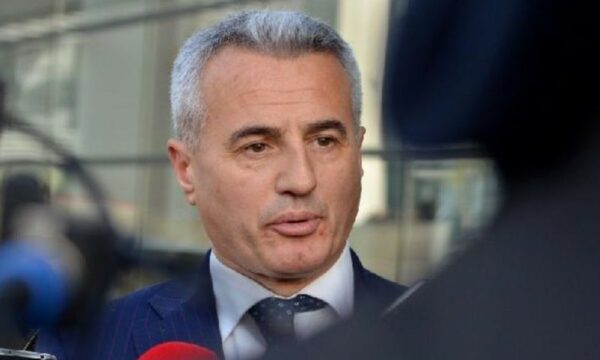
Koci: Pas vendimit të Kushtetueses po shihet se bllokuesi është Albin Kurti

Punime në rrjet, KEDS njofton për ndërprerjet e energjisë elektrike për të mërkurën
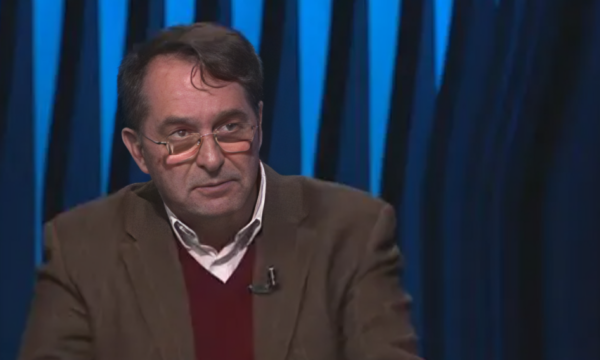
Peci: Hapja e urave në veri është pjesë e fushatës zgjedhore, por çfarë pas 12 tetorit?
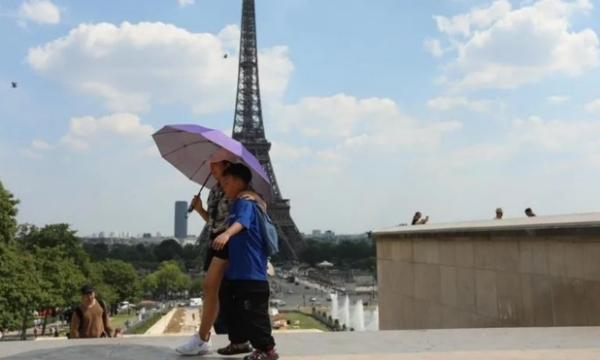
Situatë e rëndë nga moti i nxehtë në Francë, mbyllen mbi 1300 shkolla
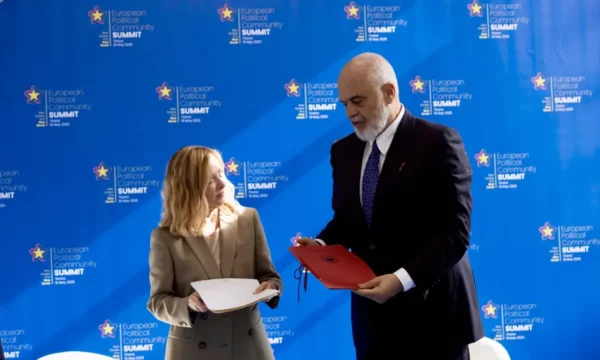
Nis zbatimi i marrëveshjes Shqipëri-Itali për pensionet
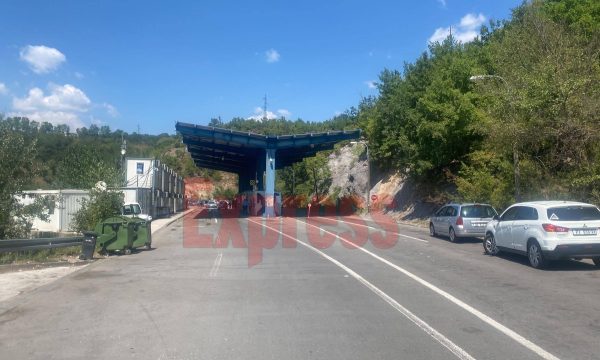
Lirohet për qarkullim rruga drejt Jarinjës
Te fundit

Koci: Pas vendimit të Kushtetueses po shihet se bllokuesi është Albin Kurti

Punime në rrjet, KEDS njofton për ndërprerjet e energjisë elektrike për të mërkurën

Peci: Hapja e urave në veri është pjesë e fushatës zgjedhore, por çfarë pas 12 tetorit?

Juventusin s’e shpëtoi as Di Gregorio, Reali kalon tutje në çerekfinale me golin e Garcias

Pas Gallapenit, edhe një shqiptar te Widzew Lodz – Selahi nënshkruan kontratë deri më 2028

Situatë e rëndë nga moti i nxehtë në Francë, mbyllen mbi 1300 shkolla
✕





